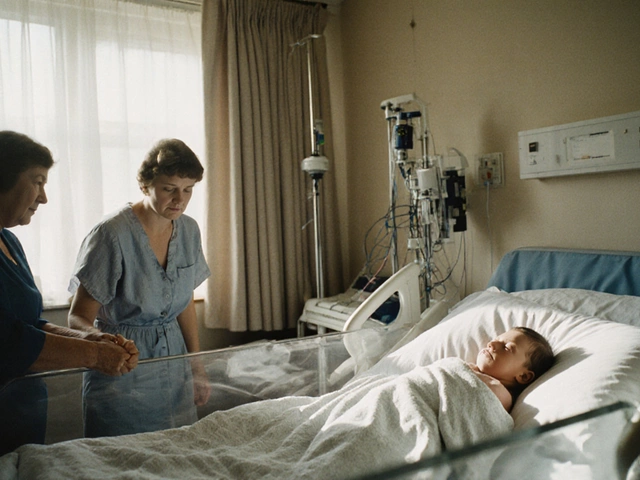Could cancer be hiding in your body for years without you knowing? Here’s what science says about how long you can live with undetected cancer and what signs to watch for.
Read MoreSilent Cancer: Spot the Hidden Signs Before It Advances
Many cancers grow quietly, showing few or no symptoms until they’re harder to treat. This silent progression tricks us into thinking everything’s fine. The good news? You can catch most of these hidden cancers early by paying attention to subtle clues and doing a few smart checks.
What Makes a Cancer "Silent"?
A silent cancer doesn’t cause pain, swelling, or obvious lumps at first. It often hides in organs like the pancreas, liver, or ovaries, where a problem can develop without warning. Because the body doesn’t send strong signals, many people only notice the disease when routine tests or an unrelated health visit reveal something odd.
Typical red flags include:
- Unexplained weight loss or loss of appetite
- Persistent fatigue that doesn’t improve with rest
- Changes in bathroom habits (like new constipation or blood in stool)
- Unusual bruising or bleeding
- Sudden, unexplained pain in the back or abdomen
Simple Steps to Detect Silent Cancer Early
1. Know Your Baseline – Keep a short health journal. Note weight, energy levels, and any new symptoms. When something shifts, you’ll have proof it’s changed.
2. Regular Screenings – Follow age‑specific guidelines for mammograms, colonoscopies, Pap smears, and low‑dose CT scans for lung cancer if you smoke. Even if you feel fine, these tests can spot tumors before they cause trouble.
3. Blood Work – Basic panels that include liver function, kidney function, and tumor markers (like CA‑125 for ovarian cancer) can catch anomalies early. Ask your doctor if a yearly panel is right for you.
4. Listen to Your Body – If a symptom lasts more than two weeks, get it checked. Persistent cough, lingering heartburn, or a sore that won’t heal deserve a doctor’s look.
5. Family History Matters – If a close relative had cancer, especially at a young age, discuss genetic testing with your doctor. Knowing your risk can shape a more aggressive screening schedule.
6. Stay Active and Eat Well – Regular exercise, a diet rich in fruits, vegetables, and whole grains, and limiting processed foods can lower the chance of many cancers. A healthy lifestyle also makes symptoms easier to notice.
7. Don’t Skip Follow‑Ups – After any abnormal test, get a clear plan. Request imaging or a specialist referral if needed. Early follow‑up can mean the difference between a small, treatable tumor and a larger, more complicated one.
Remember, catching a silent cancer early isn’t about panic; it’s about being proactive. Small habits, like a yearly check‑up and noting odd changes, give you a powerful edge.
If you notice any of the signs listed above, schedule an appointment. Even a quick phone call to your clinic can set the right wheels in motion. Early detection saves lives, and you have the tools to act before the cancer becomes louder.
Stay aware, stay regular with screenings, and trust your instincts. Silent cancers may hide, but with the right eye‑on‑your‑health routine, you can bring them to light before they cause big problems.





